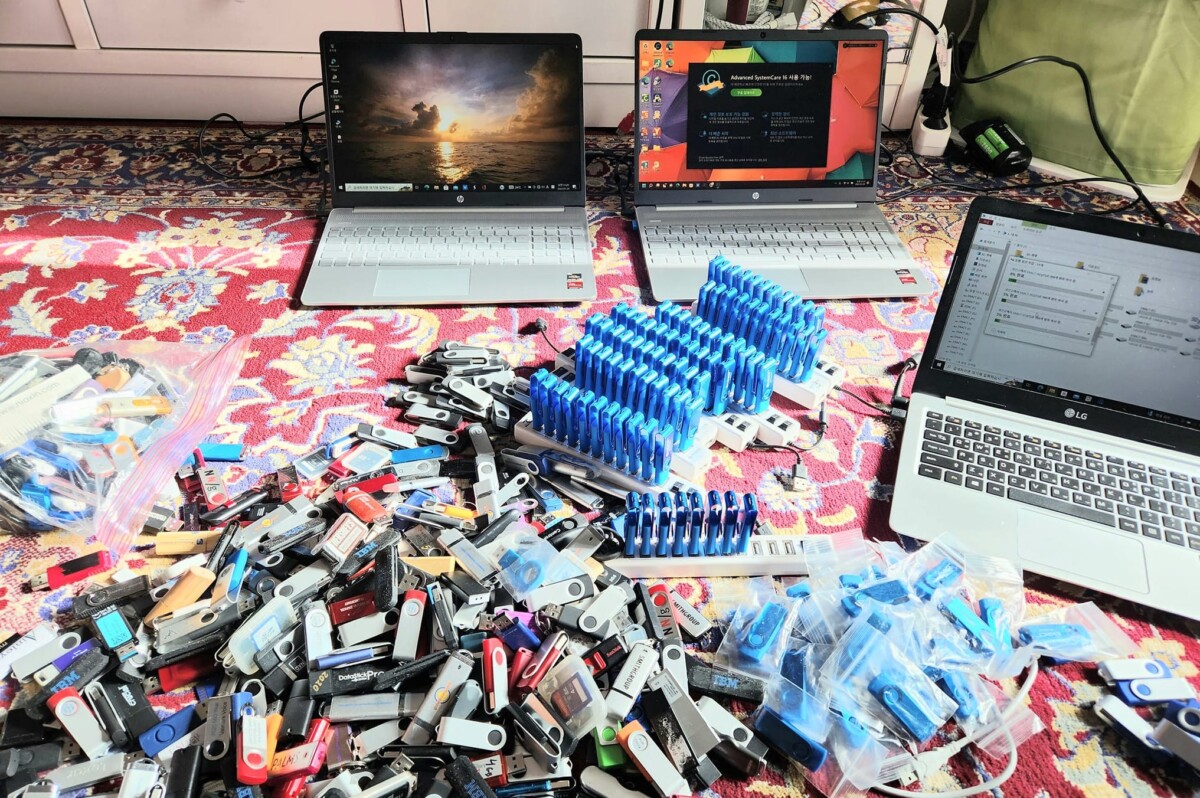A world I never knew was revealed by a USB

As everyone knows, information in North Korea is completely blocked. No internet, no foreign broadcasts, no international news. All TV and radio are state-controlled. The most common news we hear is praise for Kim Jong-un.
When I lived there, a constant refrain was, “South Korea is collapsing.” It’s a poor country, the media said. There were even propaganda stories about children hanging signs around their necks saying “Please buy my eyes” to pay for their sick mother’s treatment.
But it didn’t make sense. They said South Korea was poor, but the dramas and music didn’t look like they came from a poor country. People naturally started seeking outside information, in secret of course.
How do they get it? Some of it is smuggled in through China. But there’s another route.
I lived near the sea, and I sometimes found outside information there. You might wonder, how can someone find Korean dramas or outside content at the beach?
Let me explain. Plastic bottles would wash ashore, filled with rice, paper with Bible messages, a USB drive, and foreign currency like $1 or $2 bills.
We’d take out the rice, USB, and money – those were important. The Bible was too big and risky to keep, and most North Koreans don’t believe in God. Even if they read the Bible, they wouldn’t understand it.
But underground Christians knew what it was. They couldn’t talk about it, though. It was too dangerous. So they lived quietly.
The USBs contained Korean dramas, variety shows, and movies. We’d watch them at home.
Watching alone felt wasteful, so we’d share them with close, trustworthy friends. That person would share it again. If you don’t trust them, you must not share.
In North Korea, they say one in three people spies for the secret police. You never know who’s watching. So you only share with people you truly trust.
If you get caught watching, you’re punished. No exceptions. You could be sent to a labor camp, interrogated, imprisoned, or even executed.
I used to watch secretly, locking the door, closing the curtains. If someone came, I’d quickly unplug the USB and hide it.
In 2019, Korean dramas were more accessible for some reasons. It was rare to find someone who hadn’t seen one. We’d trade them with friends. It was widespread.
But in 2020, the “Reactionary Thought and Culture Rejection Law” was enacted. Punishments became harsher. If you were caught, you’d go to prison, or worse.
If you didn’t have money, execution was almost guaranteed. With money, you could bribe officials and reduce the punishment. Without it, you were dealt with strictly by the law.
Since 2020, North Korea has treated “ideological and cultural infiltration” as a serious threat. They created strict laws to “protect” youth from South Korean cultural contamination.
That’s the “Youth Education Law.” It enforces socialist ideological education and blocks outside content, especially South Korean videos, music, and language.
Parents, schools, and society are legally responsible for educating youth properly. The goal is to prevent youth from being influenced by anti-socialist ideas.
Everything is monitored – speech, clothing, hairstyles.
Even using Korean-style expressions like “heol,” (oh my), “daebak” (awesome) and “oppa,” (older brother, used by girls to refer to older boys) can lead to punishment.
If a young person is exposed to anti-socialist culture, their parents and teachers are punished as well.
North Korean youth can’t even choose their hairstyle or way of speaking freely. Can you imagine a law that punishes parents for how their children speak?
This law isn’t really about education. It’s about control. A country where saying “oppa” can get you punished – that’s North Korea in the 21st century.
If you’re caught watching Korean content, you face a public trial. If you’re unlucky, even public execution.
You might ask, “Why take such a risk to watch?”
Because North Koreans want change.
Through outside information, they see South Korea’s development, freedom, and everyday life. They start to wonder, “Why is it so different from us?”
At first, it’s just entertainment. But later, it becomes hope.
You realize, “There’s a world I never knew existed.” That’s what I felt when I first saw a Korean drama.
“Wow… is that real?” “South Korea is like another world.” “I can’t believe I didn’t know this until now…”
Watching USBs in secret, listening to radio news. That was an information revolution for me. It planted the seed that led me to escape.
Even now, someone in North Korea is listening to the radio through earphones in the dark, watching dramas without turning on the light.
I hope they learn more about the world, and that through this information, they find hope and believe, “I can change too.”
This reality reminds me how grateful I am to live in a free environment where I can access any content or information I want.
- Can ordinary joy awaken the people of North Korea? - February 19, 2026
- Remembering the Yeonpyeong Island bombardment - February 13, 2026
- The people at the front are the poorest: The life of a Party member - February 9, 2026

